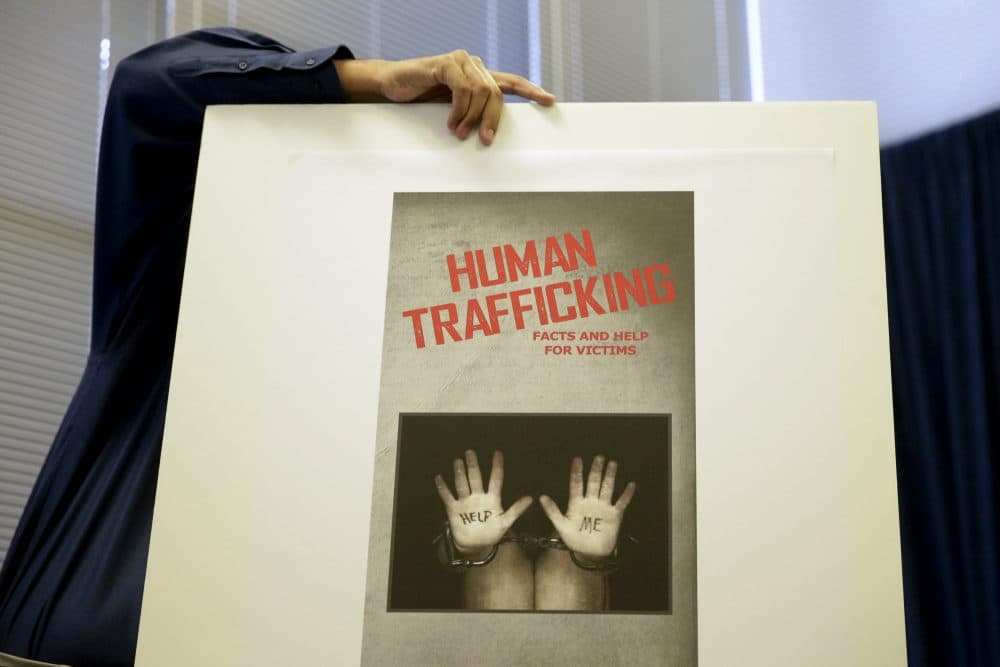Advertisement
'No One Intervened': A Sex Trafficking Survivor Says U.S. Must Do Better For Its Children

I was sexually abused and trafficked by an immediate family member from infancy until early adolescence. My abuse and exploitation supported his drug addiction. He used a CB radio to advertise me to truckers traveling along the interstate near our house. Extended family, friends and teachers suspected something was wrong, but no one intervened. Instead, most wrote me off. “That’s just what those people do to one another.” We were white trash; I was disposable.
Even though I had straight A's and graduated in the top 10 percent of my high school class, I felt worthless. In my community, I was seen as someone who would never amount to anything. But my mother had higher hopes for me. She knew my academic aspirations where my way out. She had wanted to go to college, but her violent father had convinced her that she could learn as much at the textile factory where she worked as she could in college. Even though she was trapped and could not protect me from my exploiter, she helped me survive by allowing me to have my nose in a book as often as I could and by supporting my dream of becoming a scholar.
Extended family, friends and teachers suspected something was wrong, but no one intervened.
When I was 10, I visited a friend whose mother was a professor at the local college. Their house was filled with books, and the radio was tuned to NPR. In that moment, I knew I wanted my life to look like theirs. My family was ensnared in generational cycles of violence, drug and alcohol addiction, mental illness, poverty and shame. That one visit gave me a vision of what I knew my life could look like beyond those cycles, and I held on to that inspiration for dear life as I fought my way out. Six months before I graduated from a college far from my hometown, my mother died. Heartbroken but resolute, I moved to Boston to fulfill my lifelong dream of becoming an academic.
I am now pursuing my Ph.D. in sociology at the University of Massachusetts Boston, where I am researching how organizational and legislative discrimination toward commercial sexual exploitation of children, or CSEC, can re-traumatize child sex victims and survivors instead of providing necessary services and protection. For instance, 40 states, including Massachusetts, retain the right to arrest a child (anyone under the age of 18) for prostitution, often citing the need to detain “non-compliant” youth or insisting that jail is the only way to keep victims safe from traffickers and buyers.
This approach degrades and harms trafficked children in three ways. First, arresting children for CSEC implies that they are complicit in their exploitation, not victims of a violent crime. Second, labeling sexually exploited children as "non-compliant" ignores the likelihood they have severe post-traumatic stress disorder, which can manifest as victims appearing “uncooperative” under extreme duress. Third, police who aim to “protect” victims of commercial sexual exploitation by locking them up ignore the long-term implications of having a criminal record, such as impeding future employment or educational opportunities. Instead of detention, more resources such as safe housing and funding for support programs are needed so that jail is not seen as the only option for "protecting" victims.
We must also address child sexual abuse and poverty -- two primary CSEC risk factors -- if we truly want to prevent their harm. The United States is ranked first among economically advanced countries for children dying from abuse or neglect and second for children living in poverty. In addition, we are the only United Nations member state that has not ratified the U.N. Convention on the Rights of the Child, an international children’s human rights treaty. Yet, we imagine ourselves as a country dedicated to the health and well-being of our nation’s children.
...we are the only United Nations member state that has not ratified the UN Convention on the Rights of the Child.
Decades have passed since I left my hometown, but I would still be seen as less than were I to return. I choose to shake off their prejudice. I have grown stronger as my advocacy has become more public. I recently appeared on BBC World Service to raise awareness about the scourge of child sex trafficking. My research recently changed child sex trafficking legislation in Florida to ensure that its victims will not be involuntarily detained without receiving protective services that extricate them from their abusers.
My mother dreamed that good things can happen to anybody, even people who have been violated. She didn't live long enough to see that good things have happened for me. I am happy and proud to honor her memory, however, by standing up for children who, through no fault of their own, are victimized as I was. My hope is that our nation will do better for our most vulnerable children, too.
Editor's note: Kate Price has a GoFundMe campaign to help pay for her Ph.D. studies.
